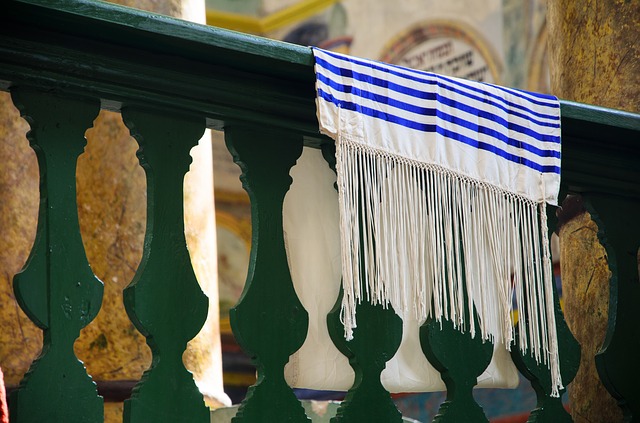
Here is a brief overview of the Sabbath in the Jewish tradition as depicted in the Old and the New Testaments
The Sabbath in the Old Testament
“This is what the LORD has commanded: ‘Tomorrow is a day of solemn rest, a holy Sabbath to the LORD; bake what you will bake and boil what you will boil, and all that is left over lay aside to be kept till the morning” (ESV Exodus 16:23).
This is the first time we encounter the word, “Sabbath” in the Old Testament. God was teaching the Israelites about the Manna, how to eat it, how much to pick up and when to pick it up. The Israelites had to collect it daily except on the Sabbath. They had to collect double the portions of whatever they needed the day before. God promised to send enough for collecting the double. On the Sabbath, they had to rest and do no work (Exodus 20:10). God ordained the Sabbath as a holy day and they could rest because God had already provided them what they needed in the preceding day.
The Sabbath Is A Big Deal
God made a big deal out of it. It was a sign of God’s eternal covenant and those who broke the sabbath must die (Exodus 31: 13-16).There were social reasons for the Sabbath including ensuring that workers will get days off. However, I find very little power in social reasons alone to explain the significance of the command and why breaking it was worthy of a death penalty, and not just a matter of paying overtime.
The Sabbath, Creation, and God's Liberation
Moses connected the Sabbath to the events of creation (Exodus 20: 8-11) and to the liberation of the Israelites from their slavery and the Egyptian oppression (Deuteronomy 15:15). In between these two events, we hear nothing about the Sabbath in any of the Patriarchs' stories. In other words, the first Sabbath was interrupted by the fall of man and we hear nothing of it until the Mosaic covenant was instituted. Ever since this interruption, God the Father has been working until we get to Jesus's confirmation that both the Father and the Son have been working (John 5:17). Thinking that they owned the true view of the Sabbath, the religious leaders tried even harder to kill him for breaking the Sabbath and for making Himself co-equal with God, the Father.
The Sabbath in the New Testament "Come to me, all who labor and are heavy laden, and I will give you rest. Take my yoke upon you, and learn from me, for I am gentle and lowly in heart, and you will find rest for your souls. For my yoke is easy, and my burden is light” (ESV Matthew 11: 28-29).
According to the Pharisaic tradition, Jesus worked on the Sabbath; He healed and liberated. To the Jewish leaders, that was breaking the Sabbath. They missed something though. In “working” on the Sabbath, Jesus left no work for man to do. Jesus did all that human's works could not achieve. God worked so that man could find rest in Him.
We know that Jesus healed the man with the withered hand, the man with an unclean spirit, the woman with a disabling spirit and a hunched back, the blind man, and the lame, paralyzed man.[1] Perhaps, all of them have been laboring their entire life, seeking healing and liberation in what the experts in science and religion say from the power of sins and Satan. They found no rest and they got progressively worse.
I see the man’s hand gradually getting contracted to the point that skin care with a chore. I see the man with an unclean spirit gradually being taken over by the destructive and agonizing ideas of Satan, one foothold and another despite his feeble resistance, leading to complete oppression, suffering, and death inside out. I see the woman’s back, neck, and head gradually bending over, seeing nothing but the ground. In their enslavement, they knew no Sabbath and found not rest on any literal observance of the Sabbath until the Sabbath Jesus healed them on. The literal observance of the Sabbath was not the answer to their labor.
From these incidents, I learned that the real Sabbath is when we see the Trinity in action in human life, God liberating man, and man finding his rest in God.
Theological Implications
Thus, by liberating us from the power of the flesh, sin, and Satan, God has made it possible for the first interrupted Sabbath to resume and has signaled that He has made a way in the Red Sea a type of crossing the sea of death. The disciples understood that. This best explains why from its earliest days of conception, the apostles remembered, not the Sabbath, but the Lord of the Sabbath and how His grace has saved humankind. Do you see why these people had to be healed on the Sabbath? Only God saves and no one else can earn such healing no matter how hard they worked to earn such rest. Six days of work, six as the number of 'man', the day mankind was created, reminds us that Sabbath was instituted for man to enjoy the gift of resting in God. Being revoked by sin does not alter from the status of the Sabbath. That is resting in God has always been a gift, not an earned wage. The only wages we earned is sin, slavery, and death.
[1]Matthew 12: 10, Mark 3:1-6, Luke 13: 10-16, Mark 1:21, John 9:14 John 5:9